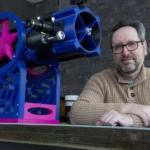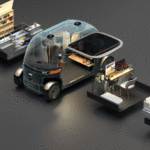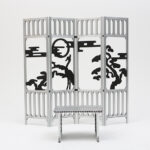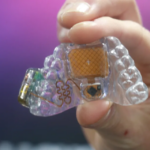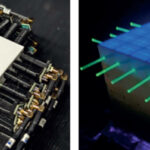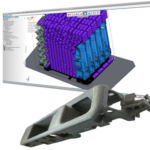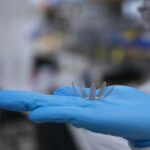German metal AM company LUMO has collaborated with Chinese company Eplus3D to create prototypes of compressor shafts for the construction industry. These shafts, integral to screw compressors, facilitate gas compression between rotors and their housing. The required components had dimensions of 100x100x400 mm and featured intricate freeform surfaces. Traditional manufacturing was deemed expensive and time-intensive so the companies turned to additive manufacturing.
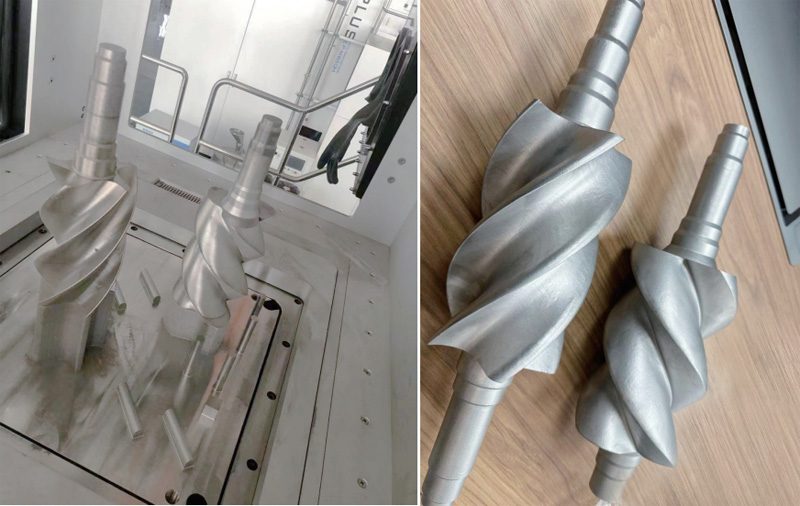
Screw compressors work by compressing air or gas using two synchronized counter-rotating rotors. These rotors are connected via compressor shafts which undergo demanding operational conditions, necessitating durability and resistance to moisture.
Evaluating manufacturing alternatives, casting was dismissed due to unsatisfactory material properties and lead times. CNC milling and grinding were cost-prohibitive because of tool wear and the components’ complexity. 3D printing, specifically LBFB, stood out due to advantages like reduced lead times, design flexibility, vast material options, and overall cost efficiency.
Eplus3D suggested their CX material for its desirable attributes like hardness and thermal conductivity. Following design adjustments, the 3D printing was executed using powder bed fusion technology, ensuring precision.
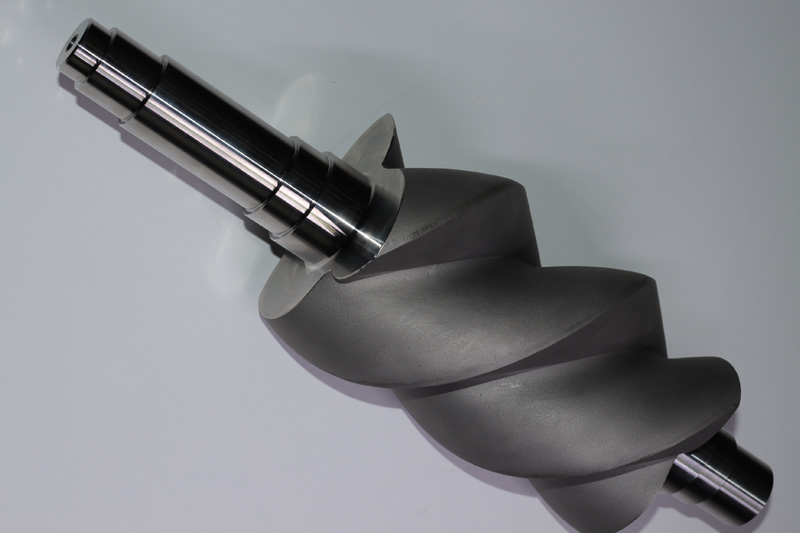
Post-printing, the components were CNC machined, achieving a roughness of Rz 6.3 µm and precise bearing seats. Functional tests validated the mechanical properties of these 3D printed shafts.
The partnership between LUMO and Eplus3D showcases the benefits of a targeted collaboration between a 3D printing service provider and an experienced system supplier of additive manufacturing equipment with broad expertise across various industries.
Source: metal-am.com
Come and let us know your thoughts on our Facebook, Twitter, and LinkedIn pages, and don’t forget to sign up for our weekly additive manufacturing newsletter to get all the latest stories delivered right to your inbox.

